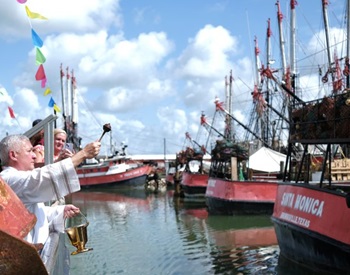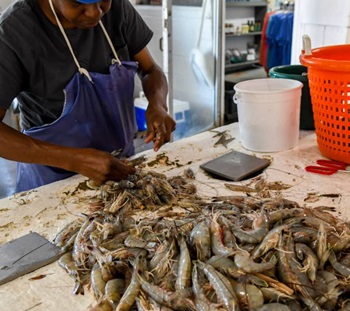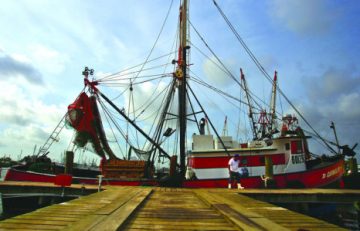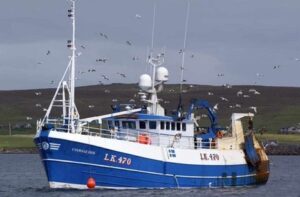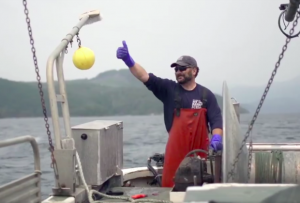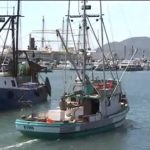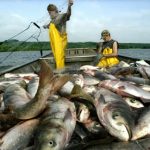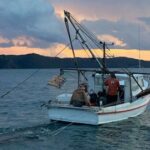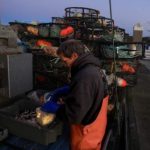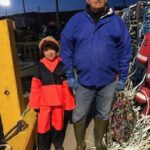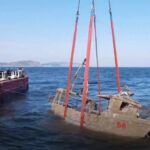Tag Archives: foreign imports
Farmers, Fishermen & the Far-Right: An Unlikely Alliance in Rural Europe
 Farmers and fishermen in rural Europe form an unlikely alliance with the far-right to protest against globalization, immigration, and policies threatening their livelihoods. This complex narrative unveils the struggle for survival, identity, and sovereignty in an ever-globalizing world. In the heart of France’s rural expanse, a surprising alliance is taking shape, one that threads through the quiet towns across Europe and stretches its roots deep into the soil of global discontent. Farmers, the bedrock of our sustenance, find themselves in an unlikely camaraderie with fishermen and factions of the far-right, united not by ideology but by a shared sense of siege. more, >>click to read<< 07:03
Farmers and fishermen in rural Europe form an unlikely alliance with the far-right to protest against globalization, immigration, and policies threatening their livelihoods. This complex narrative unveils the struggle for survival, identity, and sovereignty in an ever-globalizing world. In the heart of France’s rural expanse, a surprising alliance is taking shape, one that threads through the quiet towns across Europe and stretches its roots deep into the soil of global discontent. Farmers, the bedrock of our sustenance, find themselves in an unlikely camaraderie with fishermen and factions of the far-right, united not by ideology but by a shared sense of siege. more, >>click to read<< 07:03
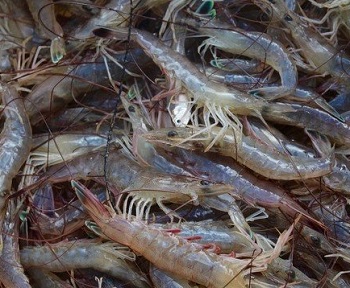
Fernandina’s Shrimping Industry: Storied Past, Uncertain Future – A Look Back
Here we are in the birthplace of American shrimping industry. We greet visitors with a waterfront Shrimping Museum. Pink and blue larger-than-life statues of shrimp adorn our parks and street corners. Our major civic celebration is the annual Shrimp Fest, complete with a parade and people dressed like crustaceans. But is it all just nostalgia? Is our historic shrimping industry just a museum piece, or is it a vibrant business that will survive and thrive? At Dave Cook’s dock at the south end of Front Street, Roy Mc Henry, who was working on his 39-foot shrimper, Queen B, while his aging Golden Retriever, Sweetie, lounged in the cockpit. Capt. McKendree was not optimistic about the state of the local shrimp industry. >click to read< 09:22
NC fishermen and their advocates say local festivals should sell local seafood
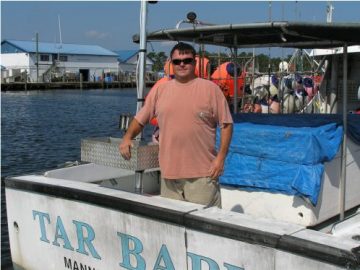 We post a lot of articles about local festivals, for the fishermen! If the fishermen are not being served, we will not promote those festivals. We do not promote imported shrimp or Tilapia. Period. – Dewey Hemilright has spent more than half his life in North Carolina’s commercial fishing industry, but he says he has never heard a bigger fish story than the claim by the Outer Banks Seafood Festival that it promotes the harvest he and his colleagues work so hard to haul in.“It’s a deception,” he said, after first using a colorful phrase that rolls more easily off the tongue of a career waterman. “They’re telling people – or at least implying to people – who come down here that they’re going to get local North Carolina seafood. They’re not. What they’re getting is imported. But put that on your sign and see how many people show up. It’s not right. You shouldn’t have to read the fine print.” Read the story here 17:59
We post a lot of articles about local festivals, for the fishermen! If the fishermen are not being served, we will not promote those festivals. We do not promote imported shrimp or Tilapia. Period. – Dewey Hemilright has spent more than half his life in North Carolina’s commercial fishing industry, but he says he has never heard a bigger fish story than the claim by the Outer Banks Seafood Festival that it promotes the harvest he and his colleagues work so hard to haul in.“It’s a deception,” he said, after first using a colorful phrase that rolls more easily off the tongue of a career waterman. “They’re telling people – or at least implying to people – who come down here that they’re going to get local North Carolina seafood. They’re not. What they’re getting is imported. But put that on your sign and see how many people show up. It’s not right. You shouldn’t have to read the fine print.” Read the story here 17:59






